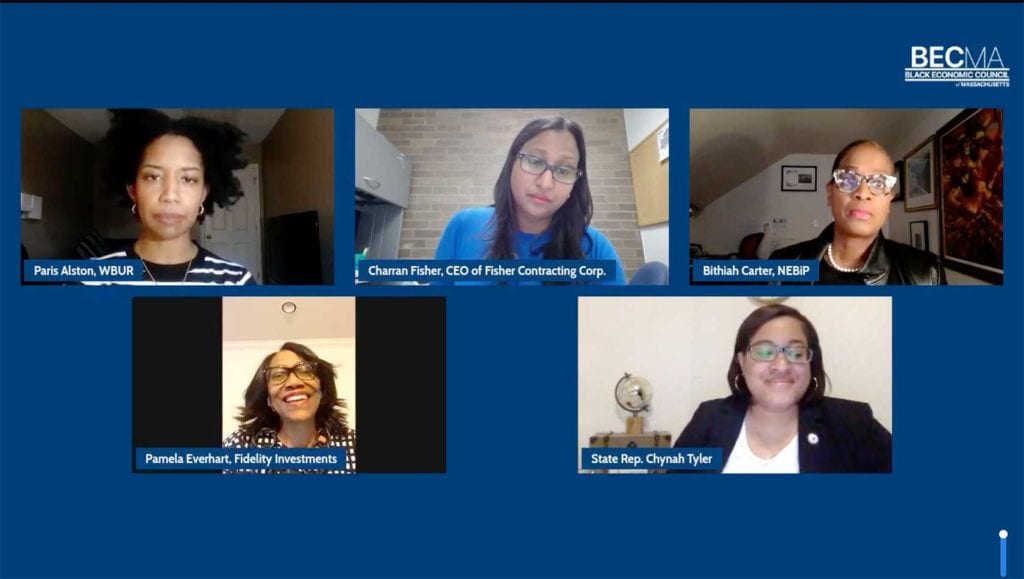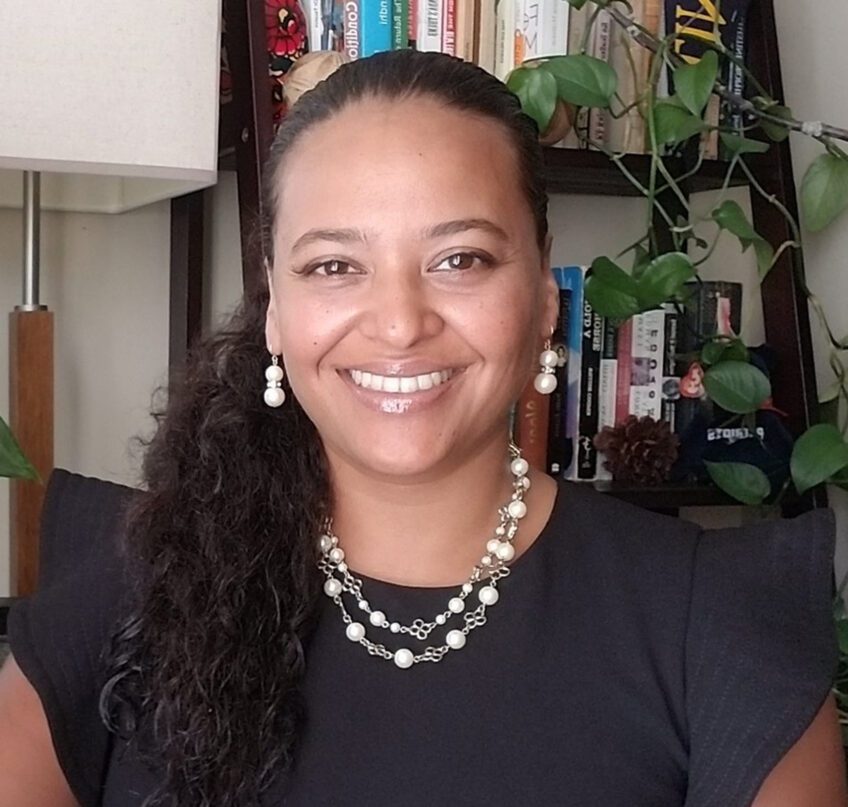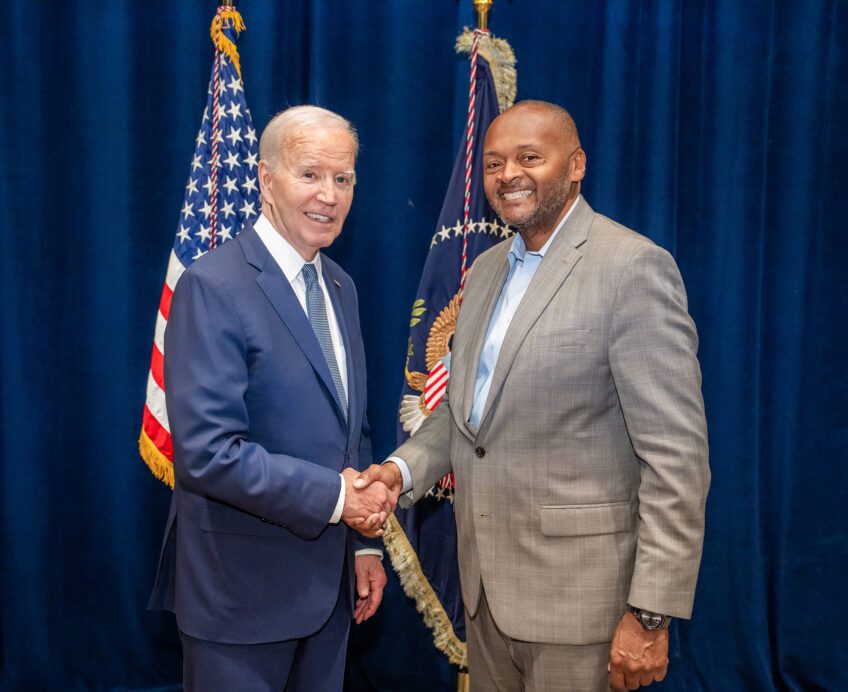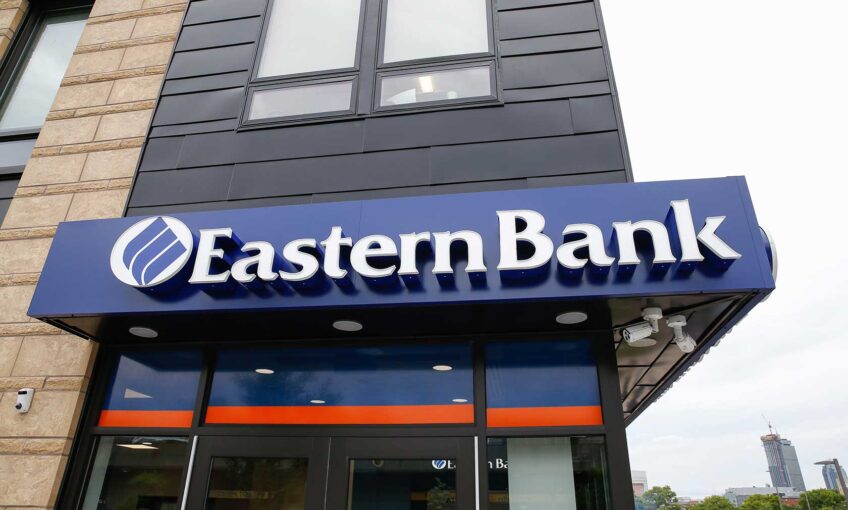Black women face business challenges
Pandemic seen exacerbating disparities

As part of its virtual event series, the Black Economic Council of Massachusetts hosted a panel of Black women leaders in business. State Rep. Chynah Tyler joined the conversation with the three entrepreneurs, with WBUR’s Paris Alston moderating.
They began by dispelling myths about women in the workplace and discussing how those myths hinder gender equity.
“I’m going to make this really real, there’s this narrative about us that we don’t work as hard,” said Bithiah Carter, President and CEO of New England Blacks in Philanthropy.
She said the narrative persists because of how Black women are viewed after they get jobs.
“What happened in the pandemic is, many of us turned to become more entrepreneurial because the workplace became a little bit worse. Black women said during the pandemic … that they didn’t feel like they could bring their whole selves to work, particularly after George Floyd and Breonna Taylor,” Carter said.
Though unique background experience benefits companies by bringing in a more diverse set of perspectives, the burden is often on Black women to do so. Pam Everhart, head of Regional Public Affairs & Community Relations at Fidelity Investments, said now there’s an opportunity to change the tune of some companies.
“Many corporations have expressed their intentions about what they’re going to do. There’s been a lot of talk and a lot of critical and courageous conversations,” Everhart said.
Black women face challenges such as lower pay and less job security than others in the American workforce, and this notion was highlighted when Black women lost jobs in record numbers due to the pandemic.
The panelists discussed how at one point, Black female entrepreneurship was growing, until the pandemic hurt small businesses. Charran Fisher, CEO of Fisher Contracting, said that securing a loan is essential for small Black-owned businesses, but it remains a huge roadblock.
“Most people don’t realize it’s very difficult for minority businesses in general to secure financing,” Fisher said. “I’m a bit more established, but one of my number one concerns every week is payroll, how am I going to make payroll, am I going to have enough cash flow?” she continued.
Another roadblock is access to contracts, whether at a state or local level. The topic of equity in contracts for minority businesses resurfaced earlier this year when the city of Boston’s disparity survey revealed that businesses opened by people of color are getting less than 2% of city contracts. Tyler brought up two bills on this topic: one that focuses on contractors and another that focuses on subcontractors.
“They’re two different industries, and two different workforces, and our goal is to be able to make sure that we’re collecting data when it comes to ensuring that Black women are accounted for when we get access to these contracts,” Tyler said.
As each panelist brought up issues that need to be addressed, Tyler looked for ways to commit to assisting through her work as a state representative. She also expressed thanks to BECMA for its work with small businesses, women-owned businesses and mom-and-pop shops to help them with applications and securing financing.
“We will make sure that we do what we can on the back end in the legislature to make sure that we’re coordinated, so that all Black businesses that have applied … have access to those funds,” she said.
Though things like financial literacy are important, the panelists agree that the Black community already has it. What it continues to lack is opportunity, especially for young people interested in entrepreneurship.
Walking into rooms and consistently being the only Black woman or only person of color is also an issue, and Fisher expressed fears of being manipulated in the workplace.
“As Black woman companies, we were afraid of being stigmatized, and we don’t want to be a snitch, we don’t want to do the tell-all, because we know that there’s repercussions,” Fisher said.
The panelists expressed support for each other, as they continue to deal with sexism and racism at the same time, while also bringing awareness to these issues.






